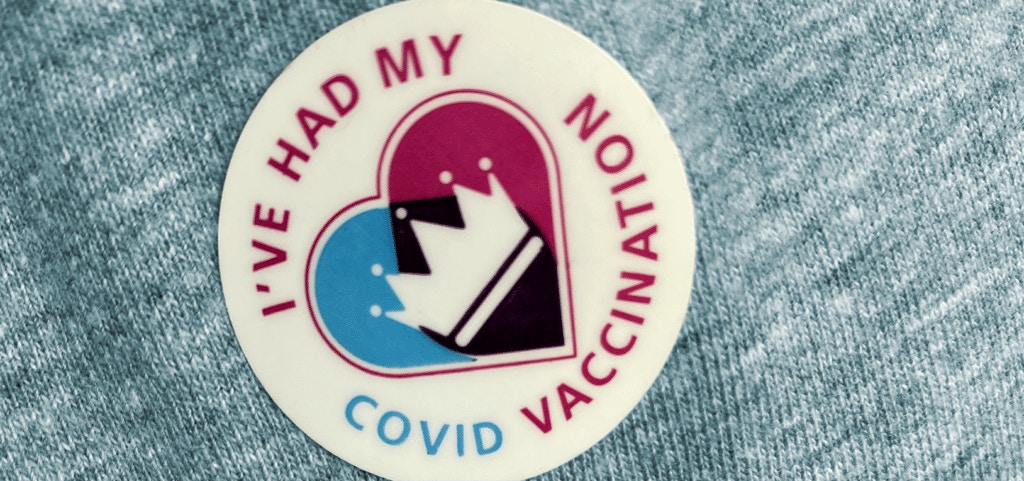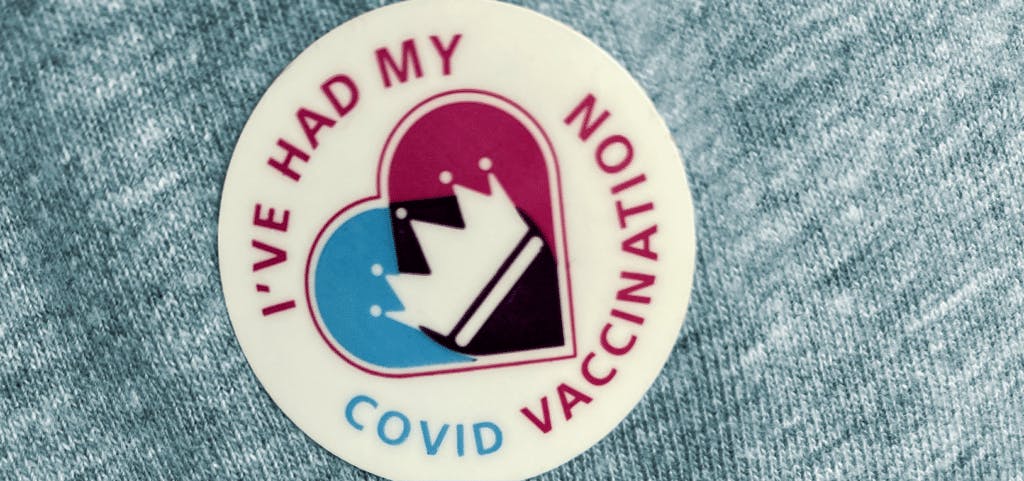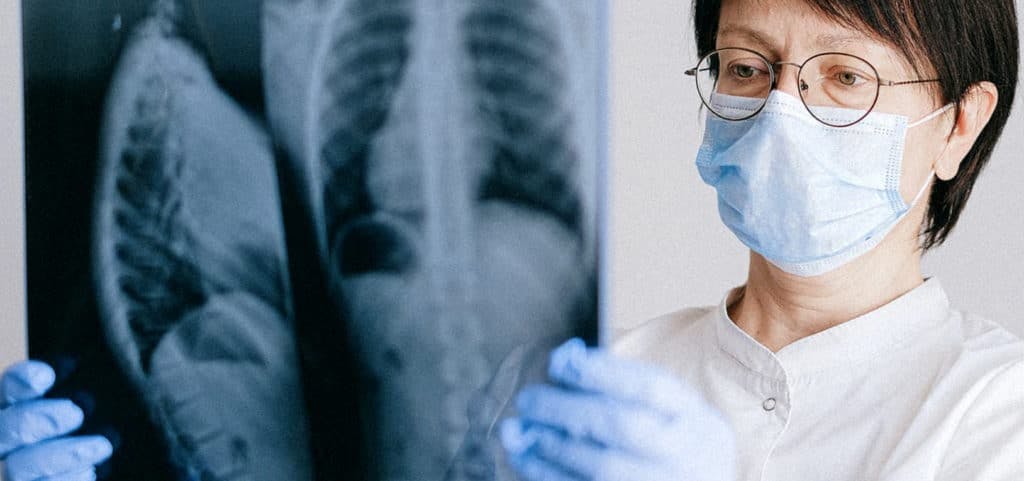Aesthetics, Fillers And COVID

From the virus to the vaccine, COVID has affected aesthetics in many ways. The issue of potential negative interactions between soft tissue fillers and COVID vaccines has been well publicised. However, there are many other possible problems we, as aesthetics practitioners, should be aware of, too.
Medical professionals are constantly uncovering new health issues resulting from asymptomatic COVID-19 and the implications of longer-term COVID.
This means that, in addition to the usual coronavirus symptoms, there are additional COVID complications aesthetic practitioners should be aware of. Not to mention the implications for psychological health.
Here is a rundown of some of the key points injectors should be mindful of and look out for, especially in those who have not yet had both COVID vaccinations.
Fillers and COVID vaccines

The COVID vaccine roll out across the UK appears to be going well and should help to reduce the number of cases of this coronavirus. This is wonderful, positive news and we fully support everyone who is medically-suitable getting vaccinated. There are, nonetheless, some issues with soft tissue filler complications that aesthetics practitioners and patients need to be aware of.
In December 2020, the Moderna vaccine clinical trial data showed that two of its participants who had previously had hyaluronic acid-based facial fillers, experienced oedema of the face and lips after their shots. Anecdotal reports of similar reactions followed, with some practitioners claiming to have seen swelling at injection sites in post-vaccination patients who had not had fillers in nine months or more.
March 2021 then saw the Journal of Cosmetic Dermatology publish the first case report on hypersensitivity to filler following the COVID vaccine. The study abstract notes:
“The incidence of hypersensitivity reactions to hyaluronic acid dermal fillers is between 0.3 and 4.25%, mediated by T‐lymphocytes. Flu‐like illness can trigger immunogenic reactions at the site of filler placement. Cases of SARS‐CoV‐2 are significant and pose a possible risk of inducing hypersensitivity. This case report is of a delayed‐type hypersensitivity after hyaluronic acid dermal filler treatment of the nose and subsequent infection with SARS‐CoV‐2. Risk factors for the development of such symptoms were identified as the presence of hyaluronic acid combined with flu‐like illness and repeated treatment of one area.”
Whilst this incident reportedly resolved itself without intervention, anecdotal claims from practitioners and patients in the UK and USA describe successful treatment with antihistamines, oral steroids or by dissolving existing fillers.
Whilst the evidence base remains sparse, Harley Academy has a strict vaccine protocol in place to help prevent such issues from arising. Patients are only able to have treatment four weeks before or four weeks after having a COVID vaccination. It is, therefore, imperative that patients are asked about vaccination dates when booking their injectables appointments and that they understand why this precaution is necessary. Of course, having the vaccine trumps filler treatment from a medical and public health perspective.
Health complications associated with asymptomatic COVID

Approximately one in every five people infected with coronavirus will not experience any symptoms. Although studies are continually evolving, so far various sources have reported ongoing health complications associated with asymptomatic COVID. Obviously, the concern here is that many of those who have, or have had symptomless COVID-19 are unlikely to realise they have/had it.
The following are some of the key concerns reported in relation to those diagnosed with asymptomatic COVID:
- stroke was noted as a potential first indicator of COVID-19 in some people
- blood clotting
- damage to the lungs including the presence of “ground glass opacities”
- abnormalities on chest imaging before and after infection
- lower levels of 18 pro- and anti-inflammatory cytokines
- 40 percent of asymptomatic individuals became seronegative in one study
- chilblains on the toes, also known as “COVID Toes”
- heart damage or inflammation.
An editorial report in The Lancet medical journal advises that myocardial inflammation can present in patients with both long COVID and those who have recovered from asymptomatic COVID.
Persistent health issues caused by long COVID

“Long COVID” is the term used for patients who tested positive for COVID-19 and did not require hospitalisation but reported symptoms lasting more than four weeks. It also includes those who were hospitalised and continued to present with symptoms for at least eight weeks after being discharged.
According to UK government advice, the following persistent health issues have been identified as effects of long COVID:
- respiratory symptoms and conditions such as chronic cough, shortness of breath, lung inflammation and fibrosis, and pulmonary vascular disease
- cardiovascular symptoms and disease such as chest tightness, acute myocarditis and heart failure
- protracted loss or change of smell and taste
- mental health problems including depression, anxiety and cognitive difficulties
- inflammatory disorders such as myalgia, multi-system inflammatory syndrome, Guillain-Barre syndrome or neuralgic amyotrophy
- gastrointestinal disturbance with diarrhoea
- continuing headaches
- fatigue, weakness and sleeplessness
- liver and kidney dysfunction
- clotting disorders and thrombosis
- lymphadenopathy
- skin rashes.
Red flags injectors should look out for

Of all the potential COVID-related issues that have been identified so far, there are two which stand out as being major red flags for injectors.
– Mental health concerns – focus on exploring this during your clinical consultation then take a view as to whether treatment is appropriate.
– Delayed-onset inflammation – there are well-documented cases of Type IV Hypersensitivity affecting hyaluronic acid filler deposits. This manifests as a tender, erythematous swelling which may come and go and are often symmetrical across the face. These reactions can be triggered by a viral illness and, anecdotally, there has been an increase in this type of filler complication during the pandemic.
If you are in any doubt as to whether or not to treat someone, remember to let the patient’s welfare guide all your decisions. If you don’t believe it is appropriate to provide treatment, you can offer to defer their appointment if you would rather not cancel completely.
As career coach, the Aesthetics Consultant, Vanessa Bird advised during an episode of The Aesthetics Show, “the one thing you cannot replace is your reputation, once it’s gone.” Therefore, be guided by what is best for the patient and this will also hold you in good stead for developing a practice that is both ethical and trustworthy.
For practitioners who also offer cosmetic dermatology services, whilst most are unsuitable for pregnant patients, there are some which may be okay such as dermaplaning. In this instance taking the strictest of precautions may be wise, or even refusing to treat. This is because catching COVID-19 during pregnancy can lead to severe complications for both mother and baby.
Lastly, a good habit to get into, especially given the pandemic, is to allow extra time for clinical consultations. That way, should you have any concerns as to whether a patient has symptomless COVID, or if they are showing potential signs of long COVID, you can discuss the best course of action with them without disrupting your schedule.
All information correct at the time of publication. Last updated: 5 May 2021
Download our full prospectus
Browse all our injectables, dermal fillers and cosmetic dermatology courses in one document
By submitting this form, you agree to receive marketing about our products, events, promotions and exclusive content. Consent is not a condition of purchase, and no purchase is necessary. Message frequency varies. View our Privacy Policy and Terms & Conditions
Attend our FREE open evening
If you're not sure which course is right for you, let us help
Join us online or in-person at our free open evening to learn more
Our Partners













STAY INFORMED
Sign up to receive industry news, careers advice, special offers and information on Harley Academy courses and services

